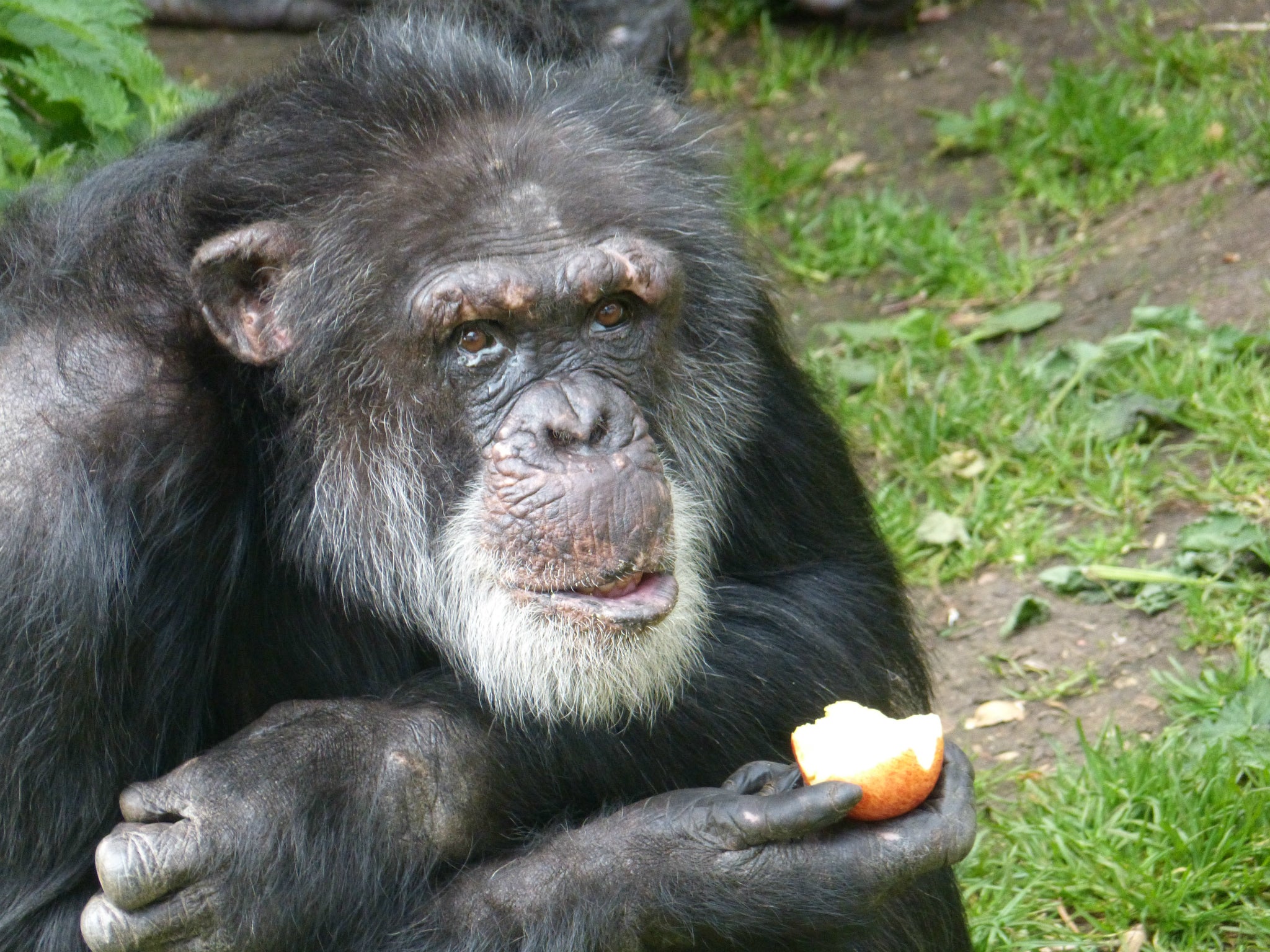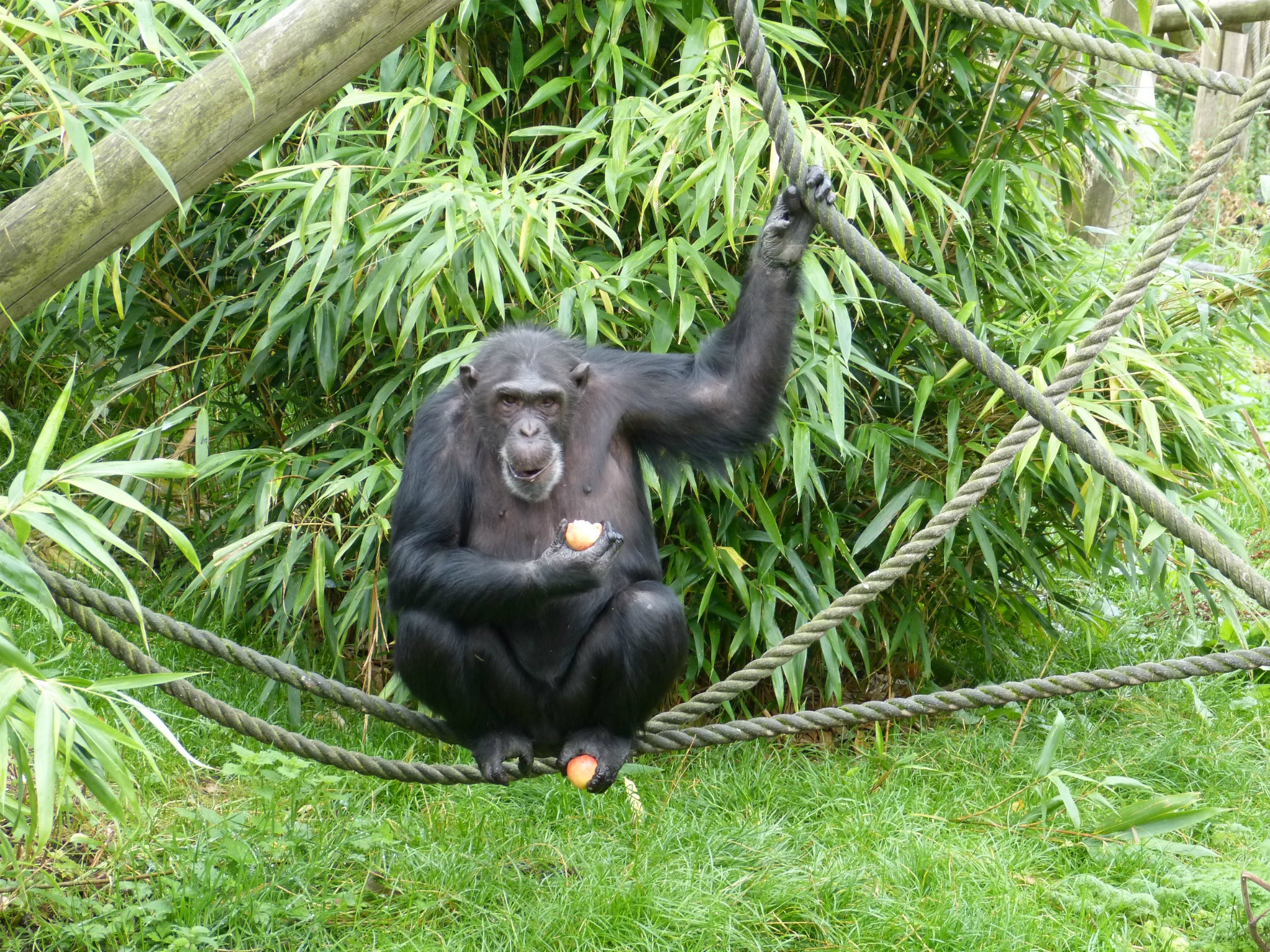Listen to Dutch chimpanzees speaking in Scottish accent: 'first evidence' of animals modifying language
They changed the sound for 'apples' to match their Scottish counterparts

Your support helps us to tell the story
This election is still a dead heat, according to most polls. In a fight with such wafer-thin margins, we need reporters on the ground talking to the people Trump and Harris are courting. Your support allows us to keep sending journalists to the story.
The Independent is trusted by 27 million Americans from across the entire political spectrum every month. Unlike many other quality news outlets, we choose not to lock you out of our reporting and analysis with paywalls. But quality journalism must still be paid for.
Help us keep bring these critical stories to light. Your support makes all the difference.
A group of Dutch chimpanzees have started making sounds like Scottish chimps at the same zoo.
A study found that the chimps, moved from Scandinavia to Edinburgh Zoo, altered the grunt they used for the word "apples" to sound more like their counterparts.
The Dutch chimps initially used a squeaky high-pitched grunt, with the Scottish chimps using a lower one. Within three years, the Dutch group had dropped down to lower tones.
The research, carried out by the Universities of Zurich and York, suggested that chimps use grunts in a very similar way to how humans use words, which helps explain how human language evolved.
Stuart Watson, one of the researchers, told the BBC the next challenge was to establish whether the change is comparable to a human learning an entirely new language, or simply picking up another accent involuntarily, but still speaking the same language.
Dr Simon Townsend, of the University of Zurich, said: “These findings might shed some light on the evolutionary origins of these abilities.
"The fact that both humans and now chimpanzees possess this basic ability suggests that our shared common ancestor living over six million years ago may also have been socially learning referential vocalisations.”

Visitors to the zoo expressed their surprise and amusement at the discovery.
One visitor told the BBC: “That’s absolutely bizarre. It’s hilarious.”
Dr Katie Slocombe, from the University of York's Department of Psychology, said: "An extraordinary feature of human language is our ability to reference external objects and events with socially learned symbols, or words.
"These data represent the first evidence of non-human animals actively modifying and socially learning the structure of a meaningful referential vocalisation."
Listen: These four calls illustrate the acoustic convergence reported by the researchers.
In 2010, Frek (a Dutch chimp) has very high pitched grunts compared to Lucy (an Edinburgh chimp).
However, by 2013, Frek and Lucy have become much more similar.
Subscribe to Independent Premium to bookmark this article
Want to bookmark your favourite articles and stories to read or reference later? Start your Independent Premium subscription today.
Join our commenting forum
Join thought-provoking conversations, follow other Independent readers and see their replies
Comments